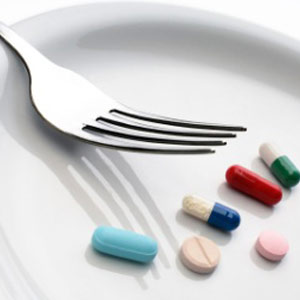
Many people know someone who has been affected by opioid dependence, and sometimes it can be those close to us who are dependent on drugs, for example a neighbour or a colleague. Opioid dependence is increasing and it’s not limited to dependence on the illegal opioid drug heroin.
In South Africa, 44.8% of people seeking treatment for prescription medicine dependence reported the use of opioid containing painkillers. The increased usage of prescription painkillers and the risk of becoming dependent on them is a serious issue and presents an urgent need for awareness and education.
People with severe pain
“For people with severe pain, opioids are very effective medicines, and many patients treated for pain with opioids do not become addicted. For some people, however, opioid dependence is an unexpected consequence of proper pain treatment. The problem comes when someone is unable to stop using the drug after the pain passes,” says Dr Volker Hitzeroth, President of the South African Addiction Medicine Society (SAAMS).
Hitzeroth explains that opioids are drugs with opium-like qualities that are either derived from opiates or are chemically related to opiates or opium. Opioids act by attaching to specific proteins called opioid receptors, which are found in the brain, spinal cord and gastrointestinal tract. When these drugs attach to the opioid receptors, they block the transmission of pain messages to the brain.
Opioids can also cause euphoria by affecting certain brain regions that mediate what we perceive as pleasure. These factors lead to the drugs being highly addictive and some people who are appropriately treated for chronic or acute pain can become dependent on opioids.
Link between chronic pain and other diseases
Opioid dependence has been defined as a chronic, relapsing brain disease and has several things in common with other chronic illnesses such as diabetes and asthma:
- It can be successfully managed
- A combination of medication and behavioural changes may help manage the disease
- Opioid dependence has a genetic basis and can be hereditary
- Symptoms can fluctuate over time with periods of being asymptomatic
“We need to be clear that addiction to a drug is not the same as physical dependence. Addiction is a condition that involves a physical, psychological and behavioural need for the opioid drug that is unrelated to medical necessity,” says Hitzeroth.
Opioid dependence has been defined as the co-occurrence of three or more of the following symptoms:
- Drug tolerance
- Withdrawal symptoms
- Use of the drug in larger quantities or for longer periods than required for medical necessity
- Repeated unsuccessful attempts to decrease or discontinue
- Significant time spent obtaining the substance or recovering from its effect
- Drug use to avoid withdrawal
- Foregoing important activities, or willingness to accept severe physical, social or professional negative consequences, due to drug use
Although the causes of opioid dependence vary from person to person, certain factors, such as the drug itself, genetics and the individual’s environment, are known to be important in its development. Some people appear to be genetically predisposed to dependence, raising the possibility that susceptibility to the disease may be hereditary.
Levels of drugs in body
Also, individual absorption levels of the drug into the blood can vary widely for different people, thus causing very different effects. Lastly, substance abuse, which can lead to dependence, is often highly influenced by societal norms and peer pressure.
That’s why doctors consider opioid dependence a long-term medical condition – one that can be treated effectively on a home-based out-patient basis, thus offering medical and personal benefits to patients and their families, and the broader society. Several forms of treatment are available.
A website for Turn-to-help, has been developed to help patients find out more about opioid dependence and encourage them to seek treatment. Alternatively, a health care professional can visit both Turn-to-help and SAAMS websites or to find out more on opioid dependence and how they can help with the treatment.
Overcoming opioid dependency is a difficult journey but with the proper knowledge and support, it is possible to be part an effective treatment solution that can help people and those close to them overcome the dependency.
Opioid Dependency Treatment Week will be held from the 22nd of April to the 26th of April.




 Publications
Publications
 Partners
Partners










